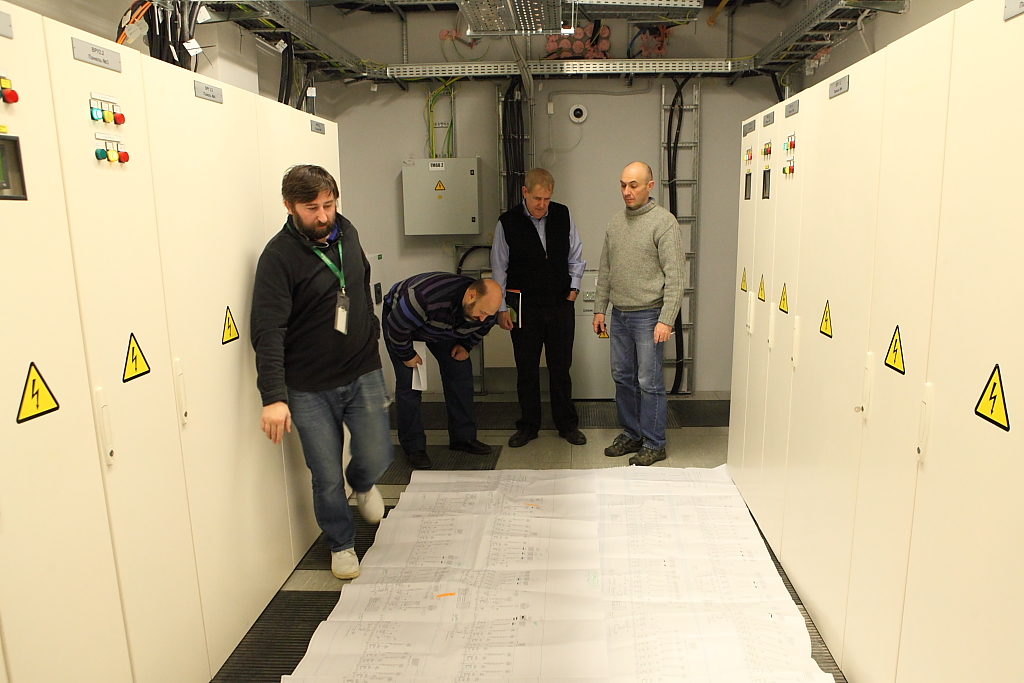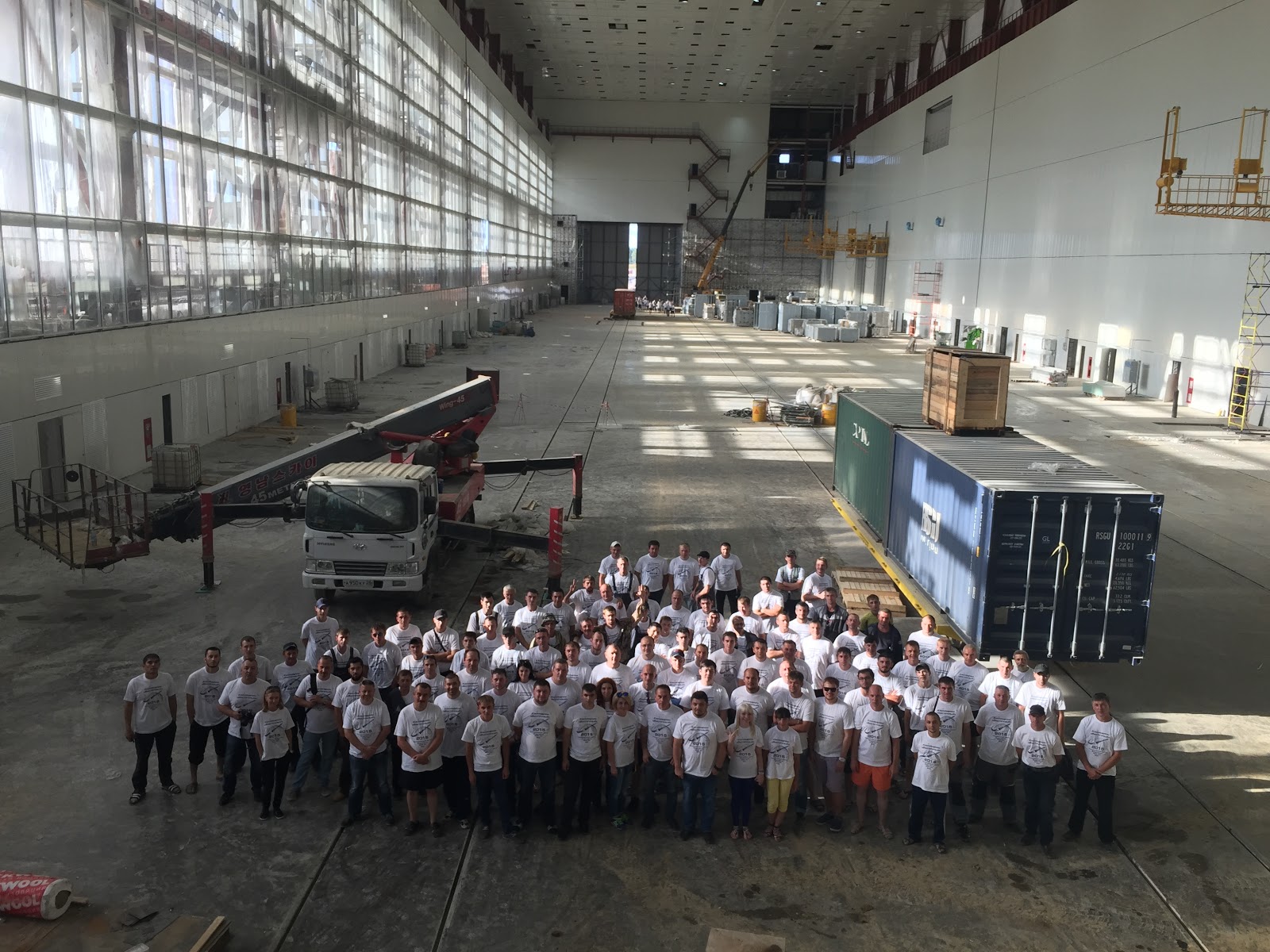Grow big: how to recognize a business leader
Today LANIT celebrates its birthday: the company turns 29 years old. We are almost close to the anniversary, and on the threshold of it we would like to reflect on what makes a business successful, as a large company grows from a small company. We asked the heads and employees of the LANIT group about this and, based on their answers, we formulated the components of a successful business. We want to introduce you to the results of our survey and discuss them.

What helps to build a sustainable business? What programs it for continuous growth and development? What unites the team and motivates it? We discussed this topic a lot within the company with its top managers and employees. Here are the main conclusions to which we have come.
It is necessary to support the leadership and employees propensity for leadership. Quickly make a career people who are able to take responsibility and achieve their goals.
To be a leader, it is necessary to grow very actively, and grow faster than the market, consistently strengthening its position.
')
Readiness for advance of time is the only way to maintain a leading position in the market. You need to be a conductor of new, track trends, invest in R & D, find new partners.
 Mediacomplex “Time Machine”, Zaryadye Park
Mediacomplex “Time Machine”, Zaryadye Park
It is important to be able to look critically at any question, not to take on faith the correctness of the fact that “everyone is doing this, therefore we need it,” not to splurge and not be standardized.
“To be the partner of the best, to be the best of the partners” - this should be the motto of the company that wants to be successful.
 MegaTsOD-2 of Sberbank in Skolkovo
MegaTsOD-2 of Sberbank in Skolkovo
You need to understand the client, not your immediate interests, to be able to hear his voice, not your own.
This is the foundation of successful work in the long term.
 The work of the Uptime Institute commission in the Technical Support Center of the Technopark “Zhigulevskaya Valley”
The work of the Uptime Institute commission in the Technical Support Center of the Technopark “Zhigulevskaya Valley”
No need to bronze, calm down, reaching a certain goal, even if it is very high. The ability to look critically at things is a must.
I want to keep the bar when those who have already achieved professional success are working nearby.
It is important to consistently increase the level of competence. Employees should constantly exchange information, ideas, solutions. The idea of complexity helps to raise professionals with a broad outlook, freely guided in everything that happens in the company.
 Equipment of the Luzhniki Grand Sports Arena
Equipment of the Luzhniki Grand Sports Arena
Inefficient staffing is unacceptable. It is dangerous, as an infection, seeking to take an epidemic character.
Freedom of decision making and choice makes room for creativity. Freedom and democratic environment, compensated by a great deal of personal responsibility, make it possible to feel the significance of each person’s personal contribution to overall success.
 Photos taken under water on the iPhone. Exhibition "Immersion" Inventive Retail Group
Photos taken under water on the iPhone. Exhibition "Immersion" Inventive Retail Group
Everyone understands their area of responsibility, and he finds the best solution.
It is necessary to search purposefully among employees of people with entrepreneurial spirit and promising business ideas, to support initiative.
The more you trust people, the less likelihood of trouble. Very important and such human qualities as honesty, integrity, goodwill.
Errors are a normal working practice. But if instead of a plan to correct mistakes, you offer excuses, your project is doomed. You should always have a high risk management plan.
Developing a direction according to one’s vision and experience, a manager who enjoys a high degree of trust of the first person may make local mistakes, but the company / business as a whole will not suffer.
The lack of bureaucracy allows you to find interesting and effective solutions that in a formalized corporate environment simply could not be born and survive. It is important not to beat on the hands, not to entangle instructions. Then wings grow.
Telling the truth to yourself, the employees, the customer is most advantageous. No need to hide problems. It is necessary, based on the facts, to seek solutions.
Openness, willingness to share knowledge and experience should be in the traditions of the company.
Respect for each other, for customers and partners, expressed in accuracy, correctness, reliability and commitment even in small things should be the norm of life.
 Vostochny cosmodrome, project team
Vostochny cosmodrome, project team
A priori, all people are good, talented and can do almost everything.
With him you can not just survive in the most hopeless situation, but also to succeed.
 Modernization of the meteorological network of Roshydromet, Kotelny Island
Modernization of the meteorological network of Roshydromet, Kotelny Island
It is important to enjoy the fact that you create useful products, carry out the necessary projects.
On October 16, 1989 the “Laboratory of New Information Technologies” (LANIT) was founded. It began with its founder, George Gens, and just a few employees. At first LANIT was engaged in distribution. At the same time, the company's specialists learned how to install equipment, test and configure it, provide service support, refine software, and train users. Developed the direction of system integration and the development of its own software.
Almost 30 years have passed, and the small company has become a corporation, which occupies the first positions in the industry ratings.
The principles listed in the article helped the company LANIT grow big. We would be interested to hear your opinion on how universal these principles are, which ones are mandatory, which ones are secondary, whether they work in your teams, what else makes companies leaders.

What helps to build a sustainable business? What programs it for continuous growth and development? What unites the team and motivates it? We discussed this topic a lot within the company with its top managers and employees. Here are the main conclusions to which we have come.
1. Team leaders
It is necessary to support the leadership and employees propensity for leadership. Quickly make a career people who are able to take responsibility and achieve their goals.
2. The desire to be first
To be a leader, it is necessary to grow very actively, and grow faster than the market, consistently strengthening its position.
')
“We have an idea to always be leaders, even though this is not always possible, but we constantly strive for this. Fortunately, unlike sports, we have no age limit: if you have not become the best gymnast before the age of 20, then you will never be farther. We [in the IT business] can constantly strive for this and at some point become the best. Therefore, our desire to be leaders is interesting for people. It's nice to work when you are a leader, not when you are in a “just to survive” situation.
George Gens, founder of the LANIT group of companies
3. Continuous search for new features
Readiness for advance of time is the only way to maintain a leading position in the market. You need to be a conductor of new, track trends, invest in R & D, find new partners.
“We understand how important it is to quickly adapt to new realities. Our priorities are our own development, the transformation of accumulated knowledge and competencies into new services, the search for new markets and the expansion of geography. ”
Philip Gens, President of the group of companies LANIT

4. The choice of optimal solutions and actions
It is important to be able to look critically at any question, not to take on faith the correctness of the fact that “everyone is doing this, therefore we need it,” not to splurge and not be standardized.
5. Products and services of the highest quality.
“To be the partner of the best, to be the best of the partners” - this should be the motto of the company that wants to be successful.

6. Orientation to the real needs of customers
You need to understand the client, not your immediate interests, to be able to hear his voice, not your own.
7. Responsibility and guaranteed fulfillment of its obligations
This is the foundation of successful work in the long term.

8. Self-criticism
No need to bronze, calm down, reaching a certain goal, even if it is very high. The ability to look critically at things is a must.
9. Wednesday
I want to keep the bar when those who have already achieved professional success are working nearby.
10. Professionalism
It is important to consistently increase the level of competence. Employees should constantly exchange information, ideas, solutions. The idea of complexity helps to raise professionals with a broad outlook, freely guided in everything that happens in the company.
“Success is determined by ... people who have the courage to take on very complex projects, projects that have no analogues not only in our practice, but sometimes in general anywhere in the world. Moreover, this courage is not a reckless underestimation of risk. It is based on self-confidence, repeatedly confirmed by experience. Carrying out such projects, our employees acquire expert knowledge, sometimes unique. ”
Murat Marshankulov, managing director of LANIT-Integration

11. Efficiency
Inefficient staffing is unacceptable. It is dangerous, as an infection, seeking to take an epidemic character.
12. Freedom to make decisions
Freedom of decision making and choice makes room for creativity. Freedom and democratic environment, compensated by a great deal of personal responsibility, make it possible to feel the significance of each person’s personal contribution to overall success.
“There is a lot of operational freedom, freedom to make decisions. At the same time, of course, no one has canceled responsibility for the financial result. ”
Yury Bagirov, Head of the Directorate

13. Self-motivation and self-organization
Everyone understands their area of responsibility, and he finds the best solution.
14. Entrepreneurial spirit, initiative
It is necessary to search purposefully among employees of people with entrepreneurial spirit and promising business ideas, to support initiative.
15. Trust
The more you trust people, the less likelihood of trouble. Very important and such human qualities as honesty, integrity, goodwill.
"The main secret of success is to trust people who want to do something, giving a chance to those who want to take responsibility for the result."
Andrey Vladimirov, General Director, LAN ATM Service
16. The right to make mistakes
Errors are a normal working practice. But if instead of a plan to correct mistakes, you offer excuses, your project is doomed. You should always have a high risk management plan.
17. Reasonable decentralization
Developing a direction according to one’s vision and experience, a manager who enjoys a high degree of trust of the first person may make local mistakes, but the company / business as a whole will not suffer.
“The history of LANIT is unique to the market: having increased the scale of business many times, we have retained the original growth pattern. Usually, the business is built from top to bottom, but here it is different. When LANIT grew in new business directions, department heads took responsibility for their development. This is how our leading companies and their top managers grew. In addition, LANIT did not touch the “reformatting” that many giants of the market went through - when they hire a well-known CEO and he redraws the company's structure into a standard - vertical one. ”
Philip Gens
18. Minimum formalization in all processes.
The lack of bureaucracy allows you to find interesting and effective solutions that in a formalized corporate environment simply could not be born and survive. It is important not to beat on the hands, not to entangle instructions. Then wings grow.
19. Openness of information
Telling the truth to yourself, the employees, the customer is most advantageous. No need to hide problems. It is necessary, based on the facts, to seek solutions.
20. The importance of human relationships
Openness, willingness to share knowledge and experience should be in the traditions of the company.
"The human nature of the relationship gives rise to an informal attitude to work."
Alexey Sosonkin, Head of Department
21. Mutual respect
Respect for each other, for customers and partners, expressed in accuracy, correctness, reliability and commitment even in small things should be the norm of life.

22. Belief in the unlimited possibilities of people.
A priori, all people are good, talented and can do almost everything.
23. Sense of humor
With him you can not just survive in the most hopeless situation, but also to succeed.

24. Pleasure from work
It is important to enjoy the fact that you create useful products, carry out the necessary projects.
On October 16, 1989 the “Laboratory of New Information Technologies” (LANIT) was founded. It began with its founder, George Gens, and just a few employees. At first LANIT was engaged in distribution. At the same time, the company's specialists learned how to install equipment, test and configure it, provide service support, refine software, and train users. Developed the direction of system integration and the development of its own software.
Almost 30 years have passed, and the small company has become a corporation, which occupies the first positions in the industry ratings.
IDC group of companies LANIT ranks 1st in terms of revenue among companies providing IT services in Russia, with a share of 9.6% of the market, in the annual competition Competitive Profiles and Analysis of Leading IT Services Players in Russia, 2018.
Other achievements
Also in the study "Competitive Profiles and Analysis of Leading IT Services Players in Russia, 2018":
By type of service
Vertical markets
In other industry ratings
In ratings of the largest Russian companies
“200 largest private companies in Russia” (Forbes, 74th place).
In HR market research
8th place in HeadHunter's “Ranking of Employers in Russia 2017” by HeadHunter.
By type of service
- 1st place in network integration and consulting;
- 1st place in IT consulting;
- 1st place in custom software development;
- 1st place in the installation and maintenance of equipment;
- 1st place in application management outsourcing;
- 2nd place in system integration;
- 2nd place in outsourcing computer and network equipment;
- 3rd place in IT education and training;
- 3rd place in software consulting and customization.
Vertical markets
- 1st place in IT services for the financial sector;
- 1st place in IT services for government agencies;
- 1st place in IT services for the manufacturing sector;
- 1st place in IT services for energy.
- 2nd place in IT services in the sector of telecommunications and media.
In other industry ratings
- 1st place in the ranking of the largest consulting groups in Russia (RAEX);
- 2nd place in the ranking of the largest Russian groups and companies in the field of information and communication technologies (RAEX).
In ratings of the largest Russian companies
“200 largest private companies in Russia” (Forbes, 74th place).
In HR market research
8th place in HeadHunter's “Ranking of Employers in Russia 2017” by HeadHunter.
The principles listed in the article helped the company LANIT grow big. We would be interested to hear your opinion on how universal these principles are, which ones are mandatory, which ones are secondary, whether they work in your teams, what else makes companies leaders.
Want us?
See vacancies on our site !
Source: https://habr.com/ru/post/426171/
All Articles